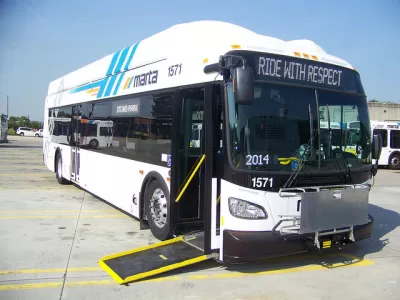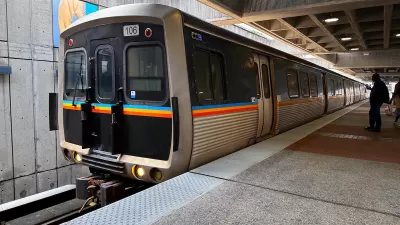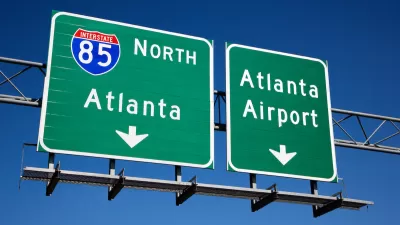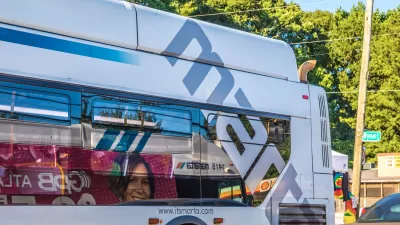Atlanta transit users will likely have to trade higher frequency for fewer routes based on a new plan approved by a planning committee last week.

According to an article by David Wickert in The Atlanta Journal-Constitution, the Metropolitan Atlanta Rapid Transit Authority (MARTA) board’s planning committee approved a plan to boost service frequency and reduce the number of bus lines in the system.
“MARTA believes the new bus service will increase ridership by prioritizing more frequent service on busy routes. But the final plan will likely spark an outcry from MARTA customers who lose routes they currently rely on.” A survey of MARTA riders showed divided opinions, with 54 percent of respondents saying they want more frequent service on fewer routes and 35 percent preferring less frequent service across a larger area. Under the new plan, buses would run every 15 minutes. The agency plans to approve a finalized plan in the fall.
While bus ridership remains at just 60 percent of pre-pandemic levels, many Atlanta-area residents depend on MARTA’s services for their daily trips. “One thing that could soften the blow of reduced routes: MARTA is developing an on-demand transit system that could serve residents in neighborhoods that lost fixed-route bus service.”
Earlier this year, MARTA announced it would scale back its expansion plans and change a proposed light rail line to bus rapid transit (BRT) due to budget constraints.
FULL STORY: MARTA leans toward more frequent bus service on fewer routes

Maui's Vacation Rental Debate Turns Ugly
Verbal attacks, misinformation campaigns and fistfights plague a high-stakes debate to convert thousands of vacation rentals into long-term housing.

Planetizen Federal Action Tracker
A weekly monitor of how Trump’s orders and actions are impacting planners and planning in America.

In Urban Planning, AI Prompting Could be the New Design Thinking
Creativity has long been key to great urban design. What if we see AI as our new creative partner?

Massachusetts Budget Helps Close MBTA Budget Gap
The budget signed by Gov. Maura Healey includes $470 million in MBTA funding for the next fiscal year.

Milwaukee Launches Vision Zero Plan
Seven years after the city signed its Complete Streets Policy, the city is doubling down on its efforts to eliminate traffic deaths.

Portland Raises Parking Fees to Pay for Street Maintenance
The city is struggling to bridge a massive budget gap at the Bureau of Transportation, which largely depleted its reserves during the Civd-19 pandemic.
Urban Design for Planners 1: Software Tools
This six-course series explores essential urban design concepts using open source software and equips planners with the tools they need to participate fully in the urban design process.
Planning for Universal Design
Learn the tools for implementing Universal Design in planning regulations.
Gallatin County Department of Planning & Community Development
Heyer Gruel & Associates PA
JM Goldson LLC
City of Camden Redevelopment Agency
City of Astoria
Transportation Research & Education Center (TREC) at Portland State University
Jefferson Parish Government
Camden Redevelopment Agency
City of Claremont





























